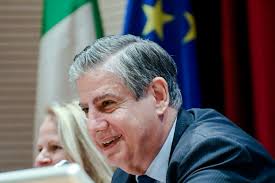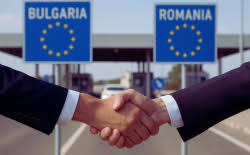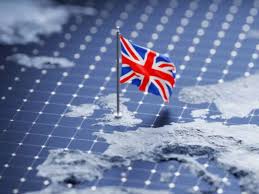Good news, and nuclear fight: 2023 in EU energy and environment

Brussels: As global warming continues to break new records, Euractiv readers were hungry for good news from the energy and environment front. Here’s our round-up of the most-read stories of 2023.
Our two most-read articles of 2023 were heart-lifting stories: the discovery of massive phosphate rock deposits in Norway and potentially infinite clean hydrogen wells in France.
The Norwegian discovery ensures that Europe will not run out of fertiliser – the main use case for phosphate rocks – and will be able to supply the small quantities crucial for producing solar panels and lithium-ion batteries. Read all about it below.
A massive underground deposit of high-grade phosphate rock in Norway, pitched as the world’s largest, is big enough to satisfy world demand for fertilisers, solar panels and electric car batteries over the next 50 years, according to the company exploiting the resource.
Meanwhile, France’s natural hydrogen reserves, estimated at around three million tonnes a year, occur naturally due to subterranean chemical processes and geothermal heat.
It could just be the cheapest and most climate-friendly gas available in Europe.
Whether companies will succeed in reaping this bounty remains to be seen. But good news is always in short supply, so that one is worth enjoying while it lasts.
While carrying out work to check the risk of firedamp pockets in the abandoned mines of the Lorraine region in May, La Française d’Énergie (FDE) discovered a large deposit of natural hydrogen, igniting hopes that it could be a game changer in Europe’s energy transition.
For the most part, though, 2023 was dominated by the usual political infighting over energy policy.
Probably the most high-profile fight pitted heavyweights France and Germany – often referred to as the EU’s (increasingly spluttering) engine – against each other over the role nuclear power should play in the bloc’s decarbonisation objectives.
The year started with a victory for nuclear proponents when Paris won recognition for low-carbon hydrogen produced from nuclear electricity as part of the EU’s new rulebook for green hydrogen tabled in February.
It was one of the year’s most technical texts, but we made it easy for you to understand in the story below.
The European Commission has tabled long-awaited rules defining the circumstances under which hydrogen can be labelled as coming from “renewable” energy sources. Last minute, Paris also won recognition for low-carbon hydrogen produced from nuclear electricity.
In March, France did the smart thing and launched a group of like-minded countries to support nuclear power across all EU legislation – a move, it turned out, that would have far-reaching consequences.
But March also delivered disillusion for the French when European Commission President Ursula von der Leyen – herself German – denied nuclear power a “strategic” technology label as part of the Commission’s proposal for a Net-Zero Industry Act.
Paris quickly clapped back and prepared a counter-offensive ahead of the March meeting of EU energy ministers.
That culminated in May when France blocked the adoption of the EU’s renewable energy directive at the last minute, arguing that further “guarantees” were needed to safeguard the production of low-carbon hydrogen derived from nuclear power.
According to Paris, the risk was that EU-wide targets on renewable hydrogen production would conflict with producing low-carbon hydrogen from nuclear sources – a red line for France.
That was an epic moment in policymaking in more ways than one, even though the matter was settled one month later. Read our story below to refresh your memory on how the drama unfolded – it was one of our biggest hits.
Formal approval of the EU’s renewable energy directive has been postponed following a last-minute objection by Paris, which wants further “guarantees” on low-carbon hydrogen derived from nuclear power.
Aside from its lost conflict with France on nuclear power, Germany has had a rough year regarding energy policy (and on many other fronts, too).
The Economist called it the “sick man of Europe”, and supporters of atomic energy often relish in Schadenfreude when things go wrong after the country shut down its last nuclear power plant in April.
For instance, readers loved it when one of the country’s top economists told Euractiv that some energy-intensive industries may no longer have a future in Germany.
The Energiewende is certainly not an easy feat, and many among you were fascinated when the story broke in November that Germany was considering curtailing EV chargers and heat pumps to ensure grid stability and prevent blackouts.
Meanwhile, our readers were also captivated by the government’s infighting over a ban of fossil fuel boilers, an issue that brought Germany’s three-party coalition on the verge of collapse.
A draft law to ban the installation of new oil and gas heaters from next year has sparked outrage in Germany, adding fuel to continued government infighting in Berlin between the Greens and the Liberals.
2023 was also the year when it became clear that a review of REACH, the EU’s landmark chemical regulation, would not make the cut in this Commission’s term.
“Game over” for REACH review, we titled in February, a move that was confirmed in October when the EU’s new Green Deal czar, Maroš Šefcovic, was established in his new role.
As global temperatures continue to break new records, Euractiv published a special report on how melting glaciers affect the daily lives of Europeans.





